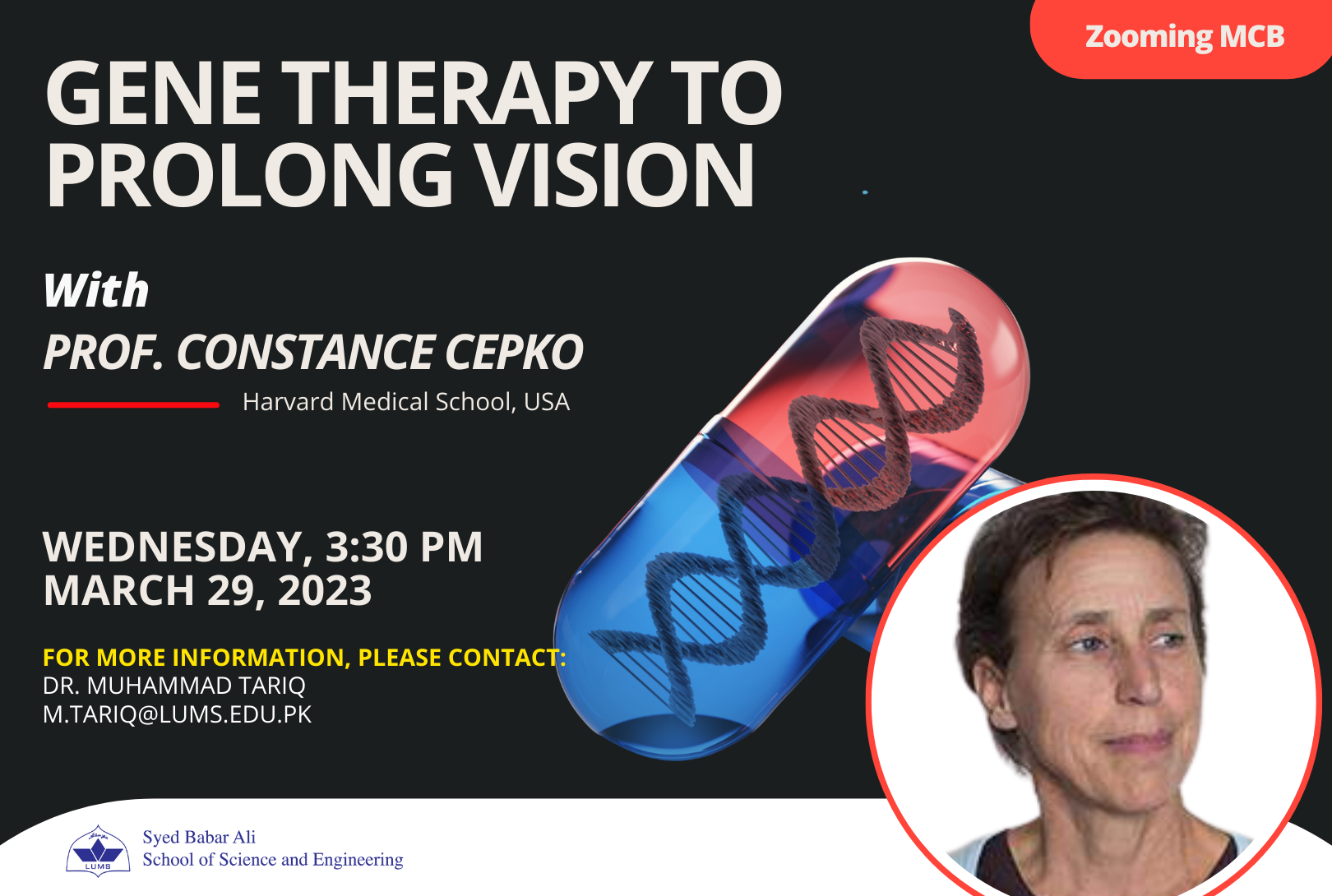
Zooming MCB: Gene Therapy to Prolong Vision
Dr Constance Cepko is Bullard Professor of Genetics and Neuroscience at Harvard Medical School and a Howard Hughes Medical Institute Investigator. She trained in virology with Phil Sharp at MIT for a Ph.D. and later with Richard Mulligan at the MIT Whitehead Institute. She helped develop retroviral vectors for transduction into the nervous system for lineage analysis and for studies of gene function in vivo. Her laboratory has focused on the topic of cell fate determination in the retina through the analysis of the behavior of progenitor and stem cells. More recently, they have been studying the mechanisms of photoreceptor death in diseases that cause blindness, such as retinitus pigmentosa and macular degeneration. Furthermore, her lab develops new tools for genetic perturbations using nanobodies, and is developing VSV as a transsynaptic virus for mapping synaptic connections among neurons. (https://hsci.harvard.edu/people/constance-cepko-phd)

